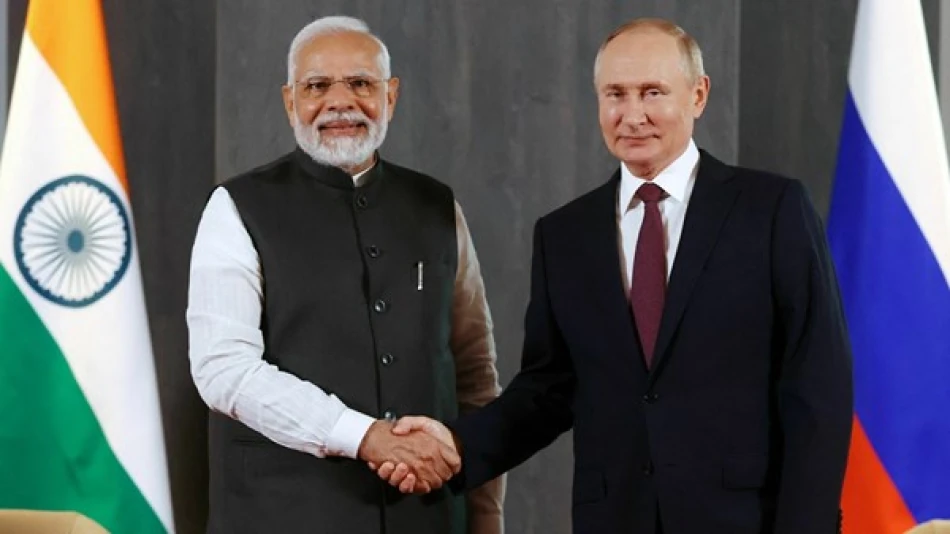
Putin and Modi Discuss Strengthening Ties, Tackling Ukraine Crisis
Modi and Putin Strengthen Ties as India Positions Itself as Key Mediator in Ukraine Crisis
Indian Prime Minister Narendra Modi held extensive talks with Russian President Vladimir Putin on Friday, discussing the Ukraine conflict and bilateral relations while reaffirming India's stance on peaceful resolution. The conversation sets the stage for Putin's planned visit to India later this year and highlights New Delhi's growing role as a neutral mediator in global conflicts, even as Western nations maintain strict sanctions against Moscow.
Strategic Partnership Deepens Despite Global Tensions
Modi described the conversation as "very good and detailed" in social media posts, thanking Putin for sharing the latest developments regarding Ukraine. The Indian leader emphasized his country's consistent position that the conflict must end through peaceful means, maintaining the diplomatic balance that has characterized India's approach since Russia's invasion began in February 2022.
Both leaders reaffirmed their commitment to deepening what they termed a "special and privileged strategic partnership" between their nations. This language signals India's determination to maintain robust ties with Russia despite mounting Western pressure to isolate Moscow diplomatically and economically.
India's Calculated Neutrality Pays Dividends
India's refusal to condemn Russia outright has positioned New Delhi as one of the few major powers capable of maintaining dialogue with both Moscow and Western capitals. This strategic neutrality has proven economically beneficial, with India becoming one of the largest buyers of discounted Russian oil, helping to cushion its economy from global energy price shocks.
The timing of these talks is particularly significant, coming just as the Kremlin confirmed that a summit between Putin and newly inaugurated U.S. President Donald Trump will take place "in the coming days" to discuss Ukraine. India's continued engagement with Russia suggests Modi sees an opportunity to play a more prominent role in any potential peace negotiations.
Geopolitical Implications for Global Order
The meeting between Putin and Indian National Security Advisor Ajit Doval in Moscow on Thursday underscores the institutional depth of Russia-India relations. Unlike many Western allies who have severed high-level contacts with Moscow, India continues to engage through multiple diplomatic channels.
For investors and policymakers, India's approach represents a broader shift toward a multipolar world order where traditional alliances are being redefined. Countries like India, China, and Brazil are increasingly asserting independent foreign policies that prioritize national interests over bloc politics, potentially reshaping global trade and security arrangements.
Economic Pragmatism Drives Policy
India's energy imports from Russia have surged from virtually zero before the Ukraine conflict to making Russia one of India's top oil suppliers. This economic relationship provides both countries with crucial leverage – Russia gains a major market for its energy exports, while India secures affordable fuel for its growing economy.
The planned Putin visit to India later this year will likely focus on expanding this economic partnership beyond energy to include defense technology, nuclear cooperation, and trade in national currencies to bypass Western financial systems. Such arrangements could serve as a model for other nations seeking to reduce dependence on dollar-dominated global trade.
Most Viewed News

 Layla Al Mansoori
Layla Al Mansoori






